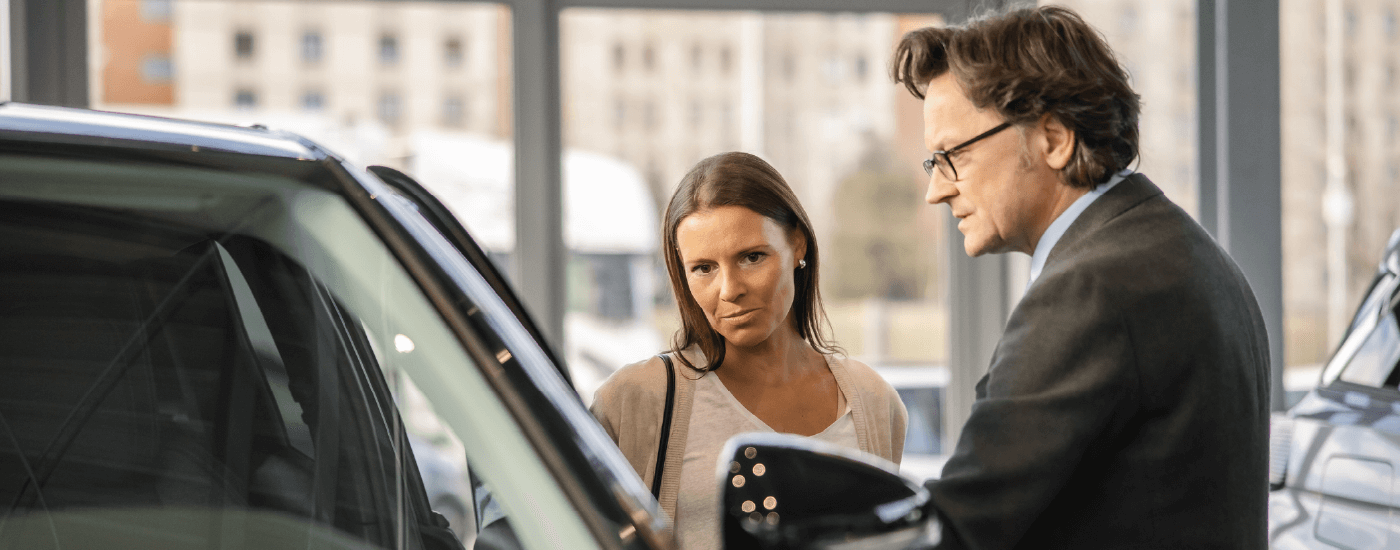Should I buy out my current vehicle lease? A comprehensive guide
Published June 28, 2024 | ![]() 3.5 minute read
3.5 minute read

When your vehicle lease term nears its end, you might face a crucial decision: should you buy out your leased vehicle or return it to the dealer? This choice depends on several factors, including your financial situation, the vehicle's condition, and market conditions. In this guide, we’ll explore the pros and cons of buying out your lease and provide key considerations to help you make an informed decision.
What does buying out a vehicle lease mean?
Buying out a vehicle lease means purchasing the car you have been leasing at the end of the lease term. The buyout price is usually specified in your lease agreement and is based on the residual value of the vehicle. This residual value is an estimate of the car’s worth at the end of the lease period.
Pros of buying out your vehicle lease
1. Known vehicle history
One of the most significant advantages of buying out your leased vehicle is that you know its history. You are aware of any maintenance issues, accidents, and repairs, which reduces the uncertainty that comes with buying a used car from an unknown source.
2. Avoid additional fees
When you return a leased vehicle, you might incur additional fees for excess mileage, wear and tear, or minor damages. Buying out your lease can help you avoid these charges.
3. Potential market value advantage
If the market value of your leased vehicle is higher than the residual value stated in your lease agreement, you can gain an asset at a lower price than its current market worth. This situation can arise if the car is in high demand or if used car prices have increased.
4. Financing options
Many lenders offer competitive financing rates for lease buyouts. If you can secure a low-interest loan, the total cost of buying out your lease might be more affordable than you think.
5. Continuity and convenience
Keeping your leased vehicle eliminates the need to shop for a new car and go through the leasing process again. It provides continuity and convenience, especially if you are satisfied with the car and its performance.
Cons of buying out your vehicle lease
1. Depreciation costs
New cars depreciate quickly, and by the end of your lease term, the vehicle has already lost a significant portion of its value. If you buy out the lease, you might end up paying more than the car is worth, especially if the residual value was overestimated.
2. Financing challenges
Securing financing for a lease buyout might be challenging if you have poor credit or if interest rates are high. It’s important to shop around for the best loan terms.
3. Long-term commitment
Buying out your lease means committing to owning the vehicle for several more years. If you prefer driving a new car every few years, this option might not be suitable for you.
4. Maintenance and repair costs
As the vehicle ages, maintenance and repair costs are likely to increase. Unlike during the lease term, these costs will be your responsibility after the buyout.
What to consider before buying out your lease?
When considering a vehicle lease buyout, first assess its condition—buying may benefit if it’s in good shape, but repairs for wear and tear can add costs. Compare the lease's residual value with current market prices using tools like Kelley Blue Book. Calculate all costs including taxes and fees against leasing or buying new. Explore financing options from banks, credit unions, and your lessor for favorable terms. Finally, ensure long-term plans align with vehicle ownership, factoring in habits and potential changes.
How to buy out your lease
If you decide to buy out your lease, follow these steps:
1. Review your lease agreement: Check your lease agreement for the buyout price and any associated fees. Ensure you understand all terms and conditions.
2. Obtain financing: If you need a loan to finance the buyout, get pre-approved by a lender. Compare offers to secure the best rate.
3. Contact the leasing company: Inform your leasing company of your decision to buy out the lease. They will provide instructions on the process and required documentation.
4. Complete the paperwork: Fill out all necessary paperwork, including loan documents if you are financing the buyout. Ensure all information is accurate.
5. Pat the buyout amount: Pay the buyout amount to the leasing company. This payment might include the residual value, taxes, and any fees.
6. Transfer ownership: Once the payment is complete, the leasing company will transfer the vehicle’s title to you. Ensure the title is correctly transferred to avoid future legal issues.
In conclusion
Deciding whether to buy out your vehicle lease depends on various factors, including the vehicle’s condition, residual value, and your long-term plans. Weighing the pros and cons and considering key factors will help you make an informed decision. If you choose to buy out your lease, follow the necessary steps to ensure a smooth and successful transaction. By understanding these aspects, you can make a choice that best suits your financial situation and driving needs.

